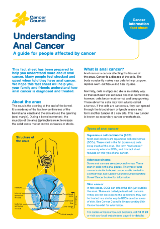- Home
- Anal cancer
- Diagnosis
- Your health care team
Your health care team
Your GP plays a key role in your care throughout your treatment for anal cancer. They will arrange the first tests to assess your symptoms. If these tests do not rule out cancer, you will usually be referred to a colorectal surgeon, who will arrange more tests and treatment.
Once your treatment begins, you will be looked after by a range of health professionals who specialise in different aspects of your care. The health professionals involved in your treatment will take a team-based approach and form a multidisciplinary team (MDT).
To find cancer specialists, multidisciplinary teams and hospitals in NSW or ACT, you can visit the NSW Government website CanRefer.
Health professionals you may see
| GP | explains information provided by specialists; assists you with treatment decisions; helps you obtain practical and emotional support; and works in partnership with your specialists in providing your ongoing care |
| colorectal surgeon | diagnoses anal cancer and operates on the anus and bowel |
| radiation oncologist | prescribes and coordinates the course of radiation therapy (radiotherapy) |
| medical oncologist | prescribes and coordinates the course of chemotherapy |
| radiologist | analyses scans and x-rays |
| gynaecologist | diagnoses and treats conditions of the female reproductive organs; sometimes sees women with anal cancer if the cancer may have spread to the genitals |
| sexual health physician | manages sexually transmitted infections, may help diagnose anal cancer, and may perform high-resolution anoscopy at follow-up appointments |
| cancer care coordinator or clinical nurse consultant (CNC) | coordinates your care, liaises with other members of your MDT, and supports you and your family throughout treatment |
| nurse | administers drugs, including chemotherapy, and provides care, information and support |
| radiation therapist | plans and delivers radiotherapy |
| radiation oncology nurse | helps you manage emotional and physical problems, including side effects that you may experience during treatment |
| stomal therapy nurse (STN) | provides information about surgery and adjusting to life with a stoma |
| sexual therapist | usually a qualified counsellor who has been trained to help people manage sexual concerns |
| dietitian | recommends an eating plan to follow while you are in treatment and recovery |
| social worker | links you to support services and helps with emotional or practical issues |
| psychiatrist, psychologist, counsellor | provides emotional support and helps manage depression and anxiety |
| physiotherapist, occupational therapist | assist with physical and practical problems, including restoring range of movement after surgery |
→ READ MORE: Anal cancer treatment
Podcast for people affected by cancer
Listen now
More resources
Dr Chip Farmer, Colorectal Surgeon, The Alfred, The Avenue and Cabrini Hospitals, VIC; Tara Faure, Lower GI Nurse Consultant, Peter MacCallum Cancer Centre, VIC; Dr Debra Furniss, Radiation Oncologist, GenesisCare, QLD; Caitriona Nienaber, 13 11 20 Consultant, Cancer Council WA; Max Niggl, Consumer; Julie O’Rourke, CNC Radiation Oncology, Cancer Rapid Assessment Unit, Cancer and Ambulatory Support, Canberra Health Services ACT; Dr Satish Warrier, Colorectal Surgeon, Peter MacCallum Cancer Centre, VIC.
View the Cancer Council NSW editorial policy.
View all publications or call 13 11 20 for free printed copies.



